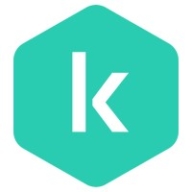

Kaspersky Endpoint Security for Business and Cortex XDR by Palo Alto Networks both compete in the security solutions category. Cortex XDR is considered to have the upper hand due to its advanced features and higher perceived ROI despite its higher cost.
Features: Kaspersky offers strong malware protection, comprehensive device control, and straightforward deployment. Cortex XDR provides advanced threat detection, integration with multiple data sources, and AI-based analytics.
Room for Improvement: Kaspersky needs better performance optimization, reduced false positives, and streamlined user interface. Cortex XDR requires simpler integration, enhanced mobile device support, and improved documentation.
Ease of Deployment and Customer Service: Kaspersky is favored for its straightforward deployment and responsive customer service. Cortex XDR's deployment is more complex, but customer service is highly effective once deployed.
Pricing and ROI: Kaspersky's pricing is more competitive and offers good value for the investment. Cortex XDR has a higher upfront cost but justifies it with superior returns due to its advanced capabilities.
They appreciate the rich telemetry data from the solution, as it provides in-depth threat identification.
Cortex XDR by Palo Alto Networks helps to reduce my total cost of ownership significantly.
I have seen a return on investment with Cortex XDR by Palo Alto Networks, as this product is offered at a minimal cost, and we can find a good ROI from it.
The technical support from Palo Alto deserves a mark of ten because they reach out within an hour whenever assistance is needed.
There is no back and forth, and they know what we are asking for and come up with the best resolution for a solution.
If any of these services are missed, it becomes a problem in terms of support tickets, follow-up, or special configuration that needs to be done in the system.
The technical support from Kaspersky was very responsive.
I would rate technical support from Kaspersky a nine out of ten.
Cortex XDR by Palo Alto Networks can be expanded anytime by purchasing another license without any issues related to scalability.
I think scalability for Cortex XDR by Palo Alto Networks is good.
Any endpoint added to Active Directory can be detected by Kaspersky Security Center, which can then push the agent onto it.
Both scalability and stability of Kaspersky Endpoint Security for Business are solid.
Cortex remains fast and responsive, even with increasing data and alerts.
The thresholds we've seen on our firewall boxes at some instances reached 80% to 85%, but even at that level of utilization, we don't observe any latency or any issues reported with respect to accessing the application.
Cortex XDR is stable, offering high quality and reliable performance.
There have been performance issues during scanning, causing the PC to respond slowly.
Improving reporting and dashboard customization, along with the addition of real-time and exportable reports, would help SOC teams greatly.
The inclusion of this feature would allow the application of DLP policies alongside antivirus policies via a single agent and console, making it more competitive as other OEMs often offer DLP solutions as part of their antivirus products.
If the per GB data could be provided at a certain level free of cost or at the same cost which the customer is taking for the entire bundle, that would be better.
Kaspersky needs to improve its security techniques as it has not been in Gartner records for the last two years.
I previously mentioned that Kaspersky Endpoint Security for Business doesn't have built-in DLP, which was a concern.
Kaspersky Endpoint Security for Business does not have encryption tools.
The pricing on SentinelOne is far more reasonable and cheaper than Cortex XDR by Palo Alto Networks.
I would say it is definitely not a cheap product, considering how mature it is and how scalable all Palo Alto products are together.
Cortex XDR is perceived as expensive by some customers, yet offers dynamic pricing.
The pricing and licensing cost of Kaspersky Endpoint Security is cheaper compared to Trend Micro.
It incorporates AI for normal behavior detection, distinguishing unusual operations.
The product provides automation responses in case of a threat attack, severity assessments, centralized manageability, and comprehensive compliance features, resulting in reduced costs.
It includes machine learning to easily analyze data and detect complex threats across endpoints, networks, or clouds.
It stands out as an antivirus and malware protection solution due to its extensive feeds and resources for antivirus signatures.
The best features in Kaspersky Endpoint Security for Business are the file threat protection, web threat protection, mail threat protection, network threat protection, firewall, behavior detection, and exploit prevention.
The unified endpoint management and the capabilities that are added to the antivirus and anti-malware are what differentiate this solution from others.
| Product | Market Share (%) |
|---|---|
| Cortex XDR by Palo Alto Networks | 3.4% |
| Kaspersky Endpoint Security for Business | 2.5% |
| Other | 94.1% |

| Company Size | Count |
|---|---|
| Small Business | 42 |
| Midsize Enterprise | 21 |
| Large Enterprise | 46 |
| Company Size | Count |
|---|---|
| Small Business | 63 |
| Midsize Enterprise | 27 |
| Large Enterprise | 33 |
Cortex XDR by Palo Alto Networks provides advanced threat detection with AI-driven endpoint protection and seamless integration, ensuring multi-layered security and automatic threat response.
Cortex XDR is designed to safeguard endpoints against malware and suspicious activities. It offers advanced threat detection and response capabilities using behavioral analysis, AI, and machine learning. It seamlessly integrates with security infrastructures, providing endpoint security, firewall integration, and enhanced visibility in both cloud-based and on-premises environments.
What are the key features of Cortex XDR?Organizations in diverse sectors deploy Cortex XDR to protect against malware, leveraging its advanced threat detection capabilities. Its integration with existing security infrastructures appeals to those seeking comprehensive protection in both cloud and on-premises environments, providing enhanced visibility and threat intelligence.
Kaspersky Endpoint Security for Business is a cybersecurity solution that is designed to protect small and large business networks and devices from all types of cyber security threats by implementing machine learning algorithms for real-time threat detection and response. The solution offers antivirus protection, firewall, network attack protection, web control, device control, data encryption, reporting tools, and more. Kaspersky integrates with a wide variety of external systems and platforms and is easy to customize to meet your organization’s specific security needs.
Benefits of using Kaspersky Endpoint Security for Business
Some of the key benefits of using Kaspersky Endpoint Security for Business include:
Kaspersky Endpoint Security for Business features
Kaspersky Endpoint Security for Business provides its users with a wide range of features to protect their corporate networks and devices against multiple types of threats, including:
Reviews from Real Users
Kaspersky Endpoint Security for Business stands out among its competitors for a number of reasons. Several major ones are its high performance, flexibility, and powerful virtualization capabilities.
Natnael A., a consultant at IWM Network Solutions, writes, “The app virtualizing is a great feature. The system developers use it to deliver apps to targeted staff. It basically reduces the server infrastructure resource. The solution provides good functionality.”
Rob M., a systems administrator at Saint Tammany Parish Hospital, says, “The solution has provided flexibility by allowing an end user to remote in, log in, and get their VM. VDI session and have all the icons and applications they need to use and retain the same booking view regardless of location.”
We monitor all Endpoint Protection Platform (EPP) reviews to prevent fraudulent reviews and keep review quality high. We do not post reviews by company employees or direct competitors. We validate each review for authenticity via cross-reference with LinkedIn, and personal follow-up with the reviewer when necessary.